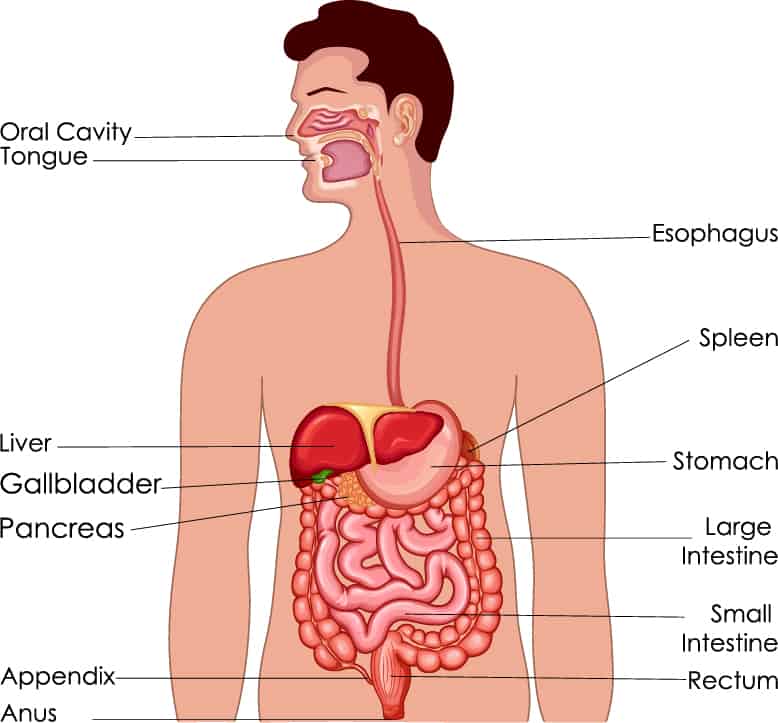- © 2018 - 2022 ProVen Probiotics. Cultech
- Contact Us
- Cookie Policy
- Privacy Policy
- Terms and Conditions
Cigarette smoking and gut health
As it’s Stoptober this month, we thought we’d delve a little deeper into the effects of cigarette smoking on gut health. Typically, we talk about the respiratory and cardiovascular consequences of cigarette smoking but what about its effect on the digestive system?

1. Let’s start in the mouth – smoking reduces saliva production providing an opportunity for bacterial overgrowth (and bad breath).
2. Moving down to the throat and chest area – tobacco can increase the chance of you suffering heartburn and gastric reflux as it relaxes the valve between the oesophagus and stomach, potentially allowing stomach acid to move up into the oesophagus (chest/throat).
3. Next is the impact on your stomach – smoking increases stomach acid production and thus increases the risk of gastric ulcers.
4. Smoking also leads to inflammation, which can affect the small intestine, potentially leading to increased permeability in the intestine wall and allowing toxins and bacteria to enter the body. One example, is that smokers have been found to have a higher risk of developing a Clostridium difficile (C. diff) infection, a bacterium that can cause diarrhoea and sometimes more serious bowel problems.
5. Finally, the large intestine can also be affected by inflammation. Crohn’s disease (an inflammatory bowel disease) has been shown to be more common among smokers than non-smokers.
6. Research has also shown that smoking has an impact on the balance of bacteria in our gut. These bacteria are part of the environment in our small and large intestines, forming part of the protective barrier on the intestine wall, known as the mucosal membrane. This barrier forms a key part of our immune system, helping to protect us from toxins and unhealthy bacteria.
Smoking statistics
Around 7 million people smoke cigarettes in the UK
Smoking is the largest preventable cause of death in the world
Since the 1940s, cigarette smoking prevalence has dropped by 60%
Cigarette smoking prevalence decreases with age
Should I quit smoking?
It is now clear that quitting smoking may help to reduce all of the gut symptoms listed above, as well as potential susceptibility to other illnesses and diseases, including cancer and cardiovascular disease.
Despite these benefits, stopping smoking is not an easy task. If you do decide to quit, it’s important to make sure you are ready to do so for your own reasons and that you are prepared for any potential side effects. These can include anxiety, low mood and increased appetite, which is often a key concern of people trying to quit smoking.
Why might I gain weight?
A number of reasons have been suggested for why people gain weight when they quit smoking, including:
- The physical practice of putting something in your mouth several times per day is habit forming. Often cigarettes are replaced with boiled sweets, mints, or other foods and this increased intake of sugar may contribute to weight gain.
- Similarly, some people use cigarettes as meal or snack replacements and so help to manage their weight in this way.
- Nicotine has been shown to impact metabolism by around 10%, meaning that it helps us to burn calories.
- Eating too much sugar may also feed the bad bacteria, leading to dysbiosis (gut imbalance) and possible weight gain. As you stop smoking, it is important to eat a healthy diet with lots of vegetables. This feeds the good bacteria in your gut and helps them proliferate.
What can I do to help reduce weight gain and stop smoking long-term?
1. Make sure you are ready to commit to giving up and are doing it for yourself and your own reasons. Be very clear about the reasons you want to stop, write them down and pin them somewhere you will see them every day.
2. Focus on the benefits day-to-day – Has your heartburn reduced? Are you experiencing less bloating? – Take time to tune into your body every day and notice the changes. Remember, some symptoms might feel worse before they improve and you are likely to feel irritable and anxious. Noticing any particular times of day that this occurs can help to identify ways to manage these feelings.
3. Make a list of activities that you can do to replace smoking and/or to help with physical or emotional changes – exercise, chewing gum, meditation, walking, reading, chatting to a supportive (non-smoking) friend, taking supplements – anything that helps to distract you.
4. Remind and congratulate yourself every day of the health benefits and kindness you’re showing your body, by remaining smoke free. Reward yourself at the end of each week, using the money you have saved to buy or do something just for you.
5. Focus on healthy and hearty foods with plenty of vegetables, protein and fat. Include soups, stews, bone broths, nuts and seeds, oily fish and eggs to nourish your body and mind.
6. Try to avoid sugary snacks, caffeine, alcohol, sweets, fizzy drinks and other ‘treats’ to replace smoking or as a ‘reward’. A nourishing wholefood diet will help with this.
7. Consider supplements to help support your gut, brain and overall health.
Want to know more?
ProVen Probiotics aim to provide the best support for both you and your health. If you wish to know more about gut health and staying regular please do not hesitate to call us on 01639 825107 or alternatively, learn more via our blogs or in-depth ProVen research.
ProVen Probiotics, Unit 2 Christchurch Road, Baglan Industrial Park, Port Talbot, SA12 7DJ. Tel: 01639 825107

 Available from the 8th March to the 19th March on our three most popular women’s probiotics.
Available from the 8th March to the 19th March on our three most popular women’s probiotics.  Discount added automatically at checkout for you.
Discount added automatically at checkout for you. 